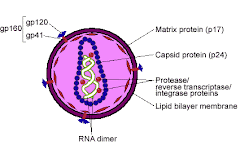
"Drinking excessive amounts of alcohol can seriously harm your health, damaging the liver, kidneys, heart, brain and central nervous system.
We already discussed long-term damage to the brain. Over time, alcohol can inflict serious damage on other body parts as well.
Areas of the body affected by alcoholism
* Liver: The liver is particularly vulnerable to the effects of alcohol because it is the organ in which alcohol and other toxins are metabolized (broken down into less harmful substances to be removed from the body). Drinking over a long period of time can lead to alcoholic hepatitis, or inflammation of the liver. Symptoms of this condition include nausea, vomiting, fever, loss of appetite, abdominal pain and jaundice (a yellowing of the skin). Up to 70 percent of people with alcoholic hepatitis develop cirrhosis. With this condition, healthy liver tissue is replaced by scar tissue, which eventually renders the liver unable to function.
* Heart: Because alcohol lowers blood pressure, the heart overcompensates, and the heart muscle can eventually become damaged as a result. Prolonged drinking increases the risks for heart disease, high blood pressure and certain kinds of stroke.
* Stomach: Alcohol irritates the lining of the stomach and intestines, causing vomiting, nausea and eventually ulcers.
* Pancreas: The pancreas releases the hormones insulin and glucagon, which regulate the way food is broken down and used for energy by the body. Long-term drinking can lead to inflammation of the pancreas (pancreatitis).
* Cancer: Research indicates that long-term drinking increases the risk of cancers of the mouth, throat, larynx and esophagus.
The effects of alcohol are even more marked in adults over 65, because their bodies don't metabolize alcohol as well as those of younger adults. Women also have more difficulty metabolizing alcohol than men, because they are typically smaller and lighter in weight. Also, alcohol can be deadly when combined with certain medications, such as pain killers, tranquilizers and antihistamines.
Fetal alcohol syndrome
Alcohol is especially dangerous to unborn babies. Exposure to alcohol in the womb can lead to fetal alcohol syndrome, the number one preventable cause of mental impairment.
Inside the developing fetus, the embryonic cells that will eventually form the brain are multiplying and forming connections. Alcohol exposure in the womb can damage these cells, impairing the development of several structures in the brain, including the basal ganglia (responsible for spatial memory and other cognitive functions), the cerebellum (involved in balance and coordination) and the corpus callosum (aids communication between the right and left halves of the brain). When babies are exposed to alcohol in the womb at any stage of pregnancy, they have more difficulty later in life with learning, memory and attention. Many are also born with a smaller-than-normal head and facial abnormalities."
Monday, September 17, 2007
Effect of "Alcohol" On The Body
Blogs'FamilyCorruptionInTheBigEasy||
FamilyCorruptionInTheBigEasy: Part 2
Posted by
Boop
at
7:53 AM
![]()
Labels: alcoholism, effects, heart, liver, pancreas, stomach
Subscribe to:
Post Comments (Atom)


















No comments:
Post a Comment